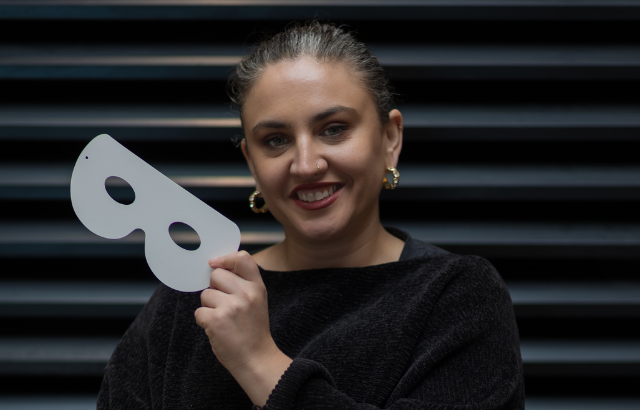Building resilience among people with autism
Researchers from Queen Mary University of London are collaborating with a range of stakeholders, including theatre companies and healthcare workers, to support people with autism through a unique project, Heartbeat – Creating Recovery.

People with autism and their carers have been amongst the worst affected groups in the global Covid-19 pandemic.
People with autism and their carers have been amongst the worst affected groups in the global Covid-19 pandemic. They are in the highest risk group for the virus itself and stay-at-home and social distancing protocols have made access to much needed targeted therapies impossible for many families.
Funded by the Arts and Humanities Research Council (AHRC), and let by Queen Mary’s People’s Palace Projects the research will investigate how innovative, theatre-based methodologies can be adapted to enable recovery from Covid-19, and build resilience among young people with autism in this uniquely challenging moment. It also aims to reveal insights into how they are experiencing the pandemic.
Creating recovery
Heartbeat – Creating Recovery brings together expertise and knowledge from a diverse background team of academics (arts/humanities/medicine), arts organisations including Peruvian theatre company La Plaza and British theatre company Flute Theatre, autistic people and their families, healthcare workers and civil society.
Flute Theatre has been developing a series of sensory drama games based on Shakespearean rhythms and language for 20 years. It has now introduced innovative ways of working online with autistic young people in the context of Covid-19. These online participatory methodologies are now being adapted by Spanish-speaking theatre-makers in Peru. They are testing how autistic individuals and their families in Latin America can get support from arts organisations throughout the pandemic, with the aim of reducing social isolation.
The same methodologies will be disseminated through observation, engagement and discussion with three other arts organisations in Latin America: Crear Vale la Pena in Argentina, Fundación Batuta in Colombia and Redes da Maré in Brazil. All three are members of a regional network of arts and mental health established by People’s Palace Project’s OLA-Building Resilience programme.
New ways of working
Teatro La Plaza is one of Latin America’s leading theatre organisations and its team are keen to continue previous work with neuro-diverse actors and audiences using Flute’s online performance techniques, to inform the development of arts-based strategies for disability-inclusive recovery. Find out more about the partner organisations on the website of People’s Palace Projects.
One technique developed by Flute is the Hunter Heartbeat Method, a series of sensory drama games based on Shakespearean rhythms and language, created by Kelly Hunter MBE, offering people with autism an opportunity to express themselves. This project explores how a shift to digital working can extend the reach and impact of creative work with autistic individuals and their families in Latin America and open up new ways of working with neuro-diverse communities during and beyond the pandemic.
The programme of work is being led by Professor Paul Heritage, Artistic Director at People’s Palace Projects. Francisco Diez Canseco, who leads CRONICAS, a centre for chronic diseases at Universidad Peruana Cayetano Heredia, is also a consultant on the project. Methodologies will be publicly available, at low-cost, in English/Spanish/Portuguese, allowing for the learning to be scaled, built on and further adapted to support autistic people and their families.
More information
- Learn more about how People’s Palace Projects is supporting the NHS during Covid-19
- Find out more about People’s Palace Projects at Queen Mary.
Related items

25 October 2024

1 October 2024
For media information, contact:
